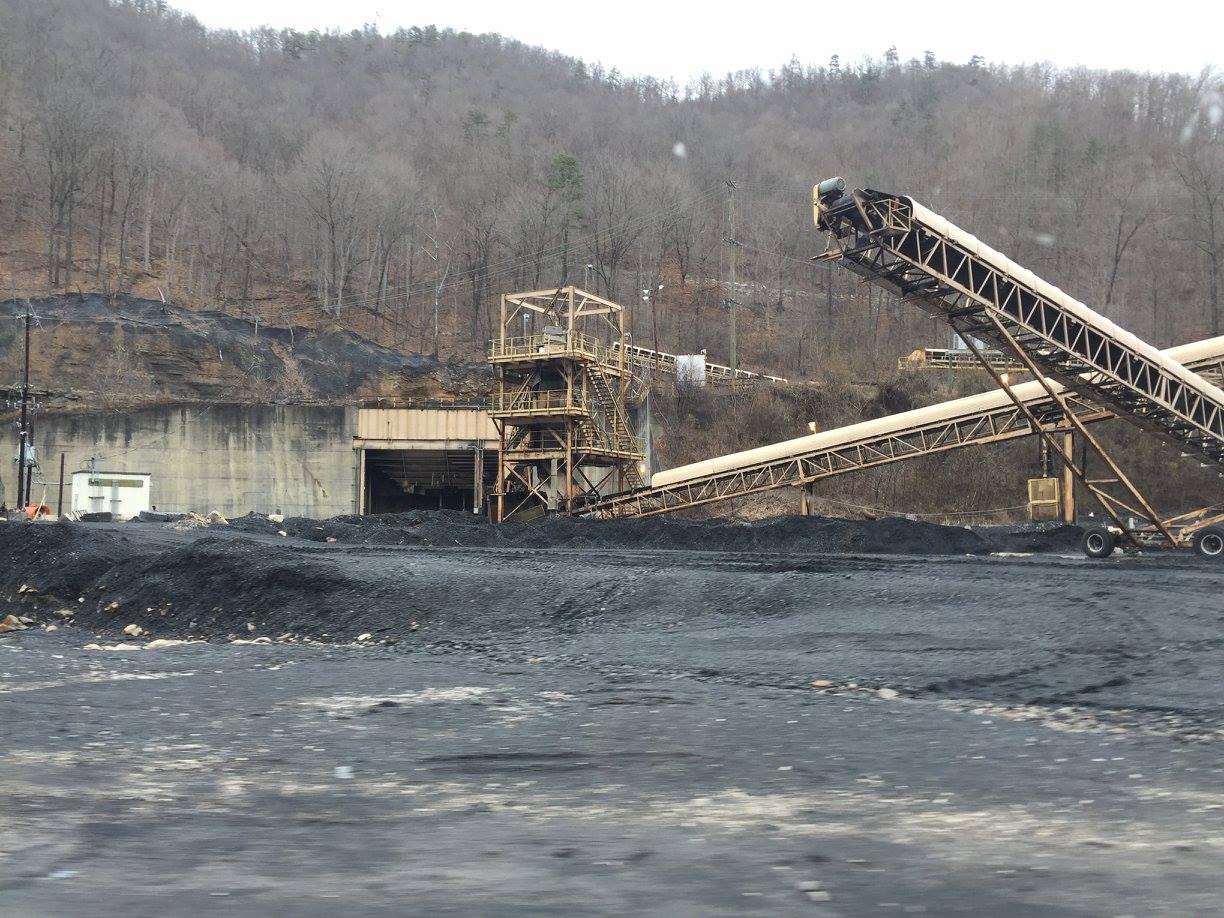UMW’s ecology club travels to West Virginia, discovers heart of coal scandal
4 min read
Kelly Emmrich | The Blue & Gray Press
By KELLY EMMRICH
Former employee of Massey Energy, Junior Walk spoke out about the harrowing effects of the coal companies on his friends, family and his mountains. Massey Energy is a coal company that was bought out by Alpha Natural Resources after Massey Energy was involved with several scandals.
Walk was born and raised in Eunice, West Virginia. He’s lived his life on Coal River and been surrounded by mountains, wildlife and Appalachian culture. He has been working with Coal River Mountain Watch, an organization that works to stop the destruction of communities and environment by mountaintop removal mining, for the past four years.
Part of his job is also hosting student groups and educating them about Coal River Mountain Top. University of Mary Washington’s Ecology club traveled to Naoma, West Virginia over spring break to learn about mountaintop removal and the harrowing effects that the coal companies have on the lives of the residents. The students spent the days hiking, picking up trash and hearing stories from locals.
“It was an incredibly moving experience to go on this trip. I didn’t realize that people lived like this in America,” said sophomore sociology major Rose Frechette.
According to Walk, the good parts of his childhood were when he was able to go back into the woods to hike and camp. The negative parts were how he had no clean water to drink, and his family lived below the poverty line.
“I’d be gone for days, and no one had to worry about me they knew where I was at,” Walk said, reflecting on his childhood. “My family knew I was okay, just getting to enjoy nature like that growing up. I only realized later on that I had an incredibly lucky childhood surrounded by nature.”
“[I] would be going to school under a slurry impoundment and having my water contaminated by coal sludge,” Walk said.
Growing up in the town of Whitesville, where the closest supermarket is an hour away, Walk knew that one of his few options for employment near his family was working at a coal company. Though he resisted it initially, like many other young residents and initially planned to go to art school, he realized that he needed money to pursue his education and ended up doing exactly what he hoped to avoid.
“So I was stuck, and that was a crushing realization,” Walk said.
Walk worked as a coal processor first. Then, he switched over to being a security guard. The job seemed fine at first, but then he heard about security guards at nearby coal companies who were being attacked by thieves and drug addicts. He explained that drug addiction was a growing problem in the region.
He was also critical of the company he worked for, in addition to the entire coal industry. He started to see many of his family members and friends develop lung cancer and brain tumors, and many of them blamed their work in the coal industry for their woes.
“I was not about to die working on minimum wage,” Walk said.
He decided to quit.
Without a plan, he decided to join various activist organizations including Coal River Mountain Watch and the Keepers of the Mountains Foundation. Coal River Mountain Watch, a political environment group, was famously involved in a court case that led Massey Coal Company to open a new school to replace Marsh Fork Elementary School, which was close to a dangerous sludge dam.
Walk is currently living in a small, one-bedroom apartment at Coal River Mountain Watch. Walk wakes up whenever his boss, Debbie Jarrell, the owner of the environmental educational company, tells him to. Walk puts on his tan pants, tan jacket and brown work boots, and he clomps down the stairs to the kitchen.
Jarrell makes him a cup of coffee with bottled water as he pours himself a bowl of Fruity Pebbles. He cleans his dishes, and when he’s done with that, he wanders over to his desk and starts working through emails.
Walk takes out his ATV to the entrance of Alpha’s Brushy Fork impoundment, and he points to the entrance bulletin of Brushy Fork Impoundment, the grounds for the Massey Coal Company.
“Do you see those two white pieces of paper?” he asks. “Those are lists of names of people who aren’t allowed on Alpha’s property,” he chuckles. “Yeah, my name’s on there now.”
Since he can’t go on onto the grounds of the Alpha, he takes drone footage from overhead to illustrate the sludge that enters the water.
He started the RAMPS campaign, which takes a more aggressive approach to activism against big coal. Members spend weeks at a time living in trees to prevent land from being overtaken.
Coal River Mountain Watch is constantly working with Mountain Justice, The Environmental Protection Act Committee and the Sierra Club. They are working to expand their student outreach programs and looking to host more students and interns for the summer.











